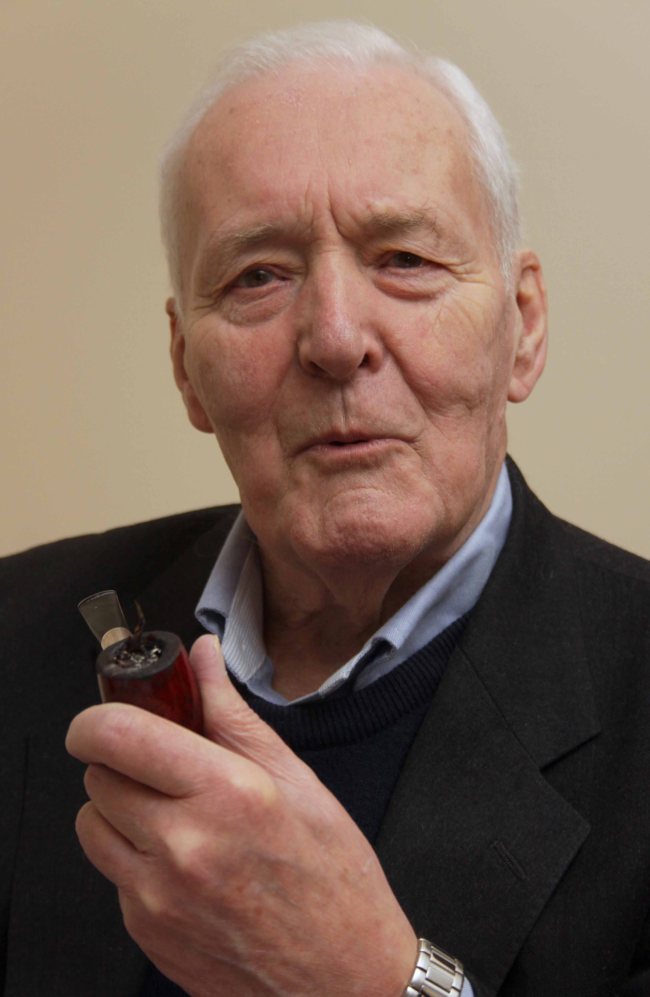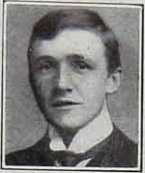IN 2000, I called the Houses of Parliament and asked to speak to Tony Benn. It wasn’t planned, just a spur of the moment thing to ask about his father, William Wedgwood Benn, MP for Leith.
Despite being busy, and my call being unexpected, he chatted for an hour. I’ve managed to track down the feature that resulted, you’ll find it below, a tribute to the last of the great conviction politicians.
By Liam Rudden
TONY Benn can barely conceal the pleasure in his voice. But then it’s not often that he’s asked to talk about a subject that is quite this close to his heart. It’s all because someone wants to know more not about the Labour maverick himself, but his father – William Wedgwood Benn.
So it’s with a great enthusiasm that he launches into his family history. “Father was first elected to Parliament in 1906, to represent the East of London, including Tower Hamlets and the Stepney Area,” he says.
“But on my birth certificate it says, ‘Occupation of father: Member of Parliament for Leith’.”
The Labour veteran is obviously a very proud son, and soon it becomes clear why. Wedgwood Benn represented the constituency of Leith from 1918 to 1926. These were truly turbulent times during which the Port finally succumbed to the rough wooing of it’s larger neighbour, Edinburgh. It was the sad end of a valiant struggle that the Liberal MP Benn had taken to the very heart of Parliament, all to no avail. On October 21 1920, Leith Town Council sat for the very last time.
His son recalls: “He gave a most passionate speech in the House of Commons, which I have some-where, and argued, very strongly that Leith should retain its freedom.”
Ultimately the amal-gamation of the two communities came as a great disappointment to Wedgwood Benn.
“Well, he’d fought very hard and he’d been defeated,” says Benn, “but that’s all part of politics.
“Still, he often used to speak about ‘The Battle For Leith’. He had very strong ideas on the subject, very much along the line that Leith had the right to govern itself, rather like the Irish right.
“I mean, I’m putting it in the same category as that because he was a democrat to his fingertips. Democracy! That was what he believed in more than anything else.”
Fiercely protective of his Scot- tish ward, Wedgwood Benn, who later became Viscount Stansgate, proved to be an unexpectedly popular repre-sentative for the people of Leith.
Even now his name is mentioned with a fond respect seldom associated with the politicians of today.
“You know, I still get letters from people saying, ‘I remember your father, the Captain’,” he says. “It was his rank in the Army, and after the war it was all he was ever known by. People still write to me about him, and any letters about my father I always keep.”
A distinguished war hero, ‘The Captain’ had led a daring life even before accepting the Leith challenge. Joining the Middlesex Yeomanry at the age of 37, he qualified as a pilot before transferring to the RAF where he continued to carry his Army rank. In 1918 he parachuted as the first spy behind enemy lines, and shortly before returning to Parliament was decorated with the Distinguished Flying Cross, the French Croix de Guerre, and the Italian Military Cross.
His son continues the story: “During the war, he was still a Member of Parliament, but while he was away they redistributed the boundaries, and someone else was edging into his constituency. His father, my grandfather, who was himself a Liberal MP, said to him: ‘Do the high and sublime – don’t fight a colleague.’
“He was then offered the job of joint chief whip by David Lloyd George, but turned it down, preferring instead to be adopted as the Member for Leith, which he did for the next eight years.”
It was quite a major undertaking for the London-based politician. “At that time you didn’t have a rail warrant you know,” says Benn. “Every time you went up to your constituency you had to pay your fare out of a parliamentary salary of £400 a year.”
Despite protecting the Port from afar, his integrity was unequivocally acknowledged by those he stood for. Their affection was never more evident than in 1920 when he married Margaret Holmes, Tony Benn’s mother.
“The people of Leith were very generous, and gave them wonderful presents,” he says.
Disappearing for a second, he calls: “I rather think that I’ve seen a plaque with something on it . . .”
He returns with his mind put at rest. “Sorry to keep you waiting,” he says politely, “but my memory has been confirmed. The Leith Liberal Association gave them a beautiful canteen of silver cutlery for the table. I still have it.”
On his next visit to Leith, ‘The Captain’ was accompanied by his new wife. “My mother was 20 years younger than my father,” Benn reveals, “and I remember him telling me that he took her with him to visit a local school. There, he asked, ‘Do you know who I have got with me today children?’ And they replied, ‘Yer daughter’,” chuckles Benn, his east coast accent uncannily accurate.
Benn adds that his father threw himself into Scottish life with a passion.
“He loved Scotland, and as the Member for Leith he was very active in the Liberal ‘Wee Free’ group, who were non-Lloyd George Liberals. He was always bitterly opposed to Lloyd George because he had formed a coalition with the Tories, and father never believed in coalition, except during wartime. In fact, he fought and won the 1918 election campaigning against the Lloyd George ticket.”
However, in 1926 his nemesis David Lloyd George became leader of the Liberal Party. On principle, William Wedgwood Benn resigned from the Liberal Party and joined Labour.
“He also resigned his seat that very same day,” Benn points out. “He said, ‘I cannot sit in Parliament when I was elected as a Liberal, and am now Labour.’ He shook hands with the Speaker, and joined the opposition benches.”
Regretfully, he adds: “They don’t do that nowadays.”
It’s clear that his father played a pivotal role in shaping his son’s future.
“He had a tremendous influence on me,” says Benn. “He was a radical Liberal, and so was his father – my grandfather was elected in 1892 as a home ruler for Ireland.”
As an example of his father’s politics Benn adds: “He made his maiden speech on the public ownership of the Port of London. You know, those old Liberals were so far to the left of New Labour that today they’d be expelled.
“He worked with Lloyd George on the National Insurance Act – this was before Lloyd George defected to the Tories – and he was a great believer in the Welfare State, and a supporter of home rule for Ireland, and India.
“All those ideas influenced me very strongly. Indeed, when I was a little boy he took me to No 10 where I met Ramsay Macdonald, he was 30 when I was five. I have very strong memories of my childhood and of Father. He only died in 1960.”
Born in 1925, Tony Benn himself was too young to join his father on his trips up north, but has more than made up for it since.
“I have been to Leith many times,” he says, “and attended many meetings there, especially when Ron Brown was the local MP.”
Nostalgically he muses: “Being half Scots myself – my mother was from Paisley – my heart beats faster whenever I cross the Border.”
But straight-talking as ever, Benn laughs, as he adds: “And if things get any worse under New Labour I might just take political asylum in Scotland.”
Originally published in the Edinburgh Evening News, October 10, 2000


